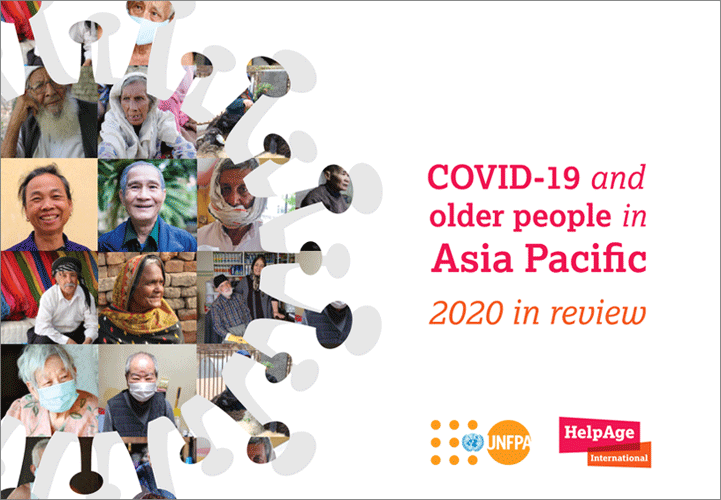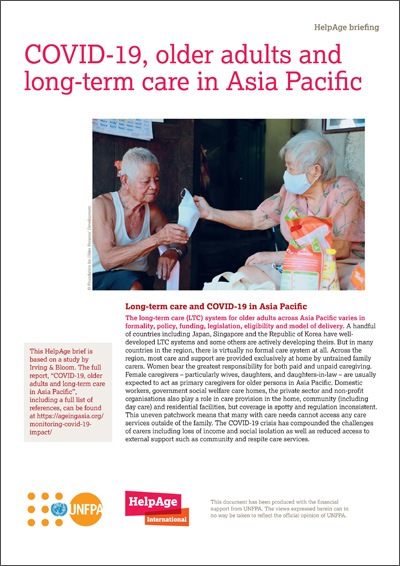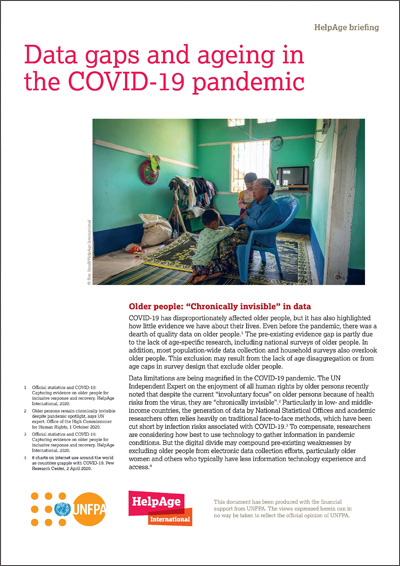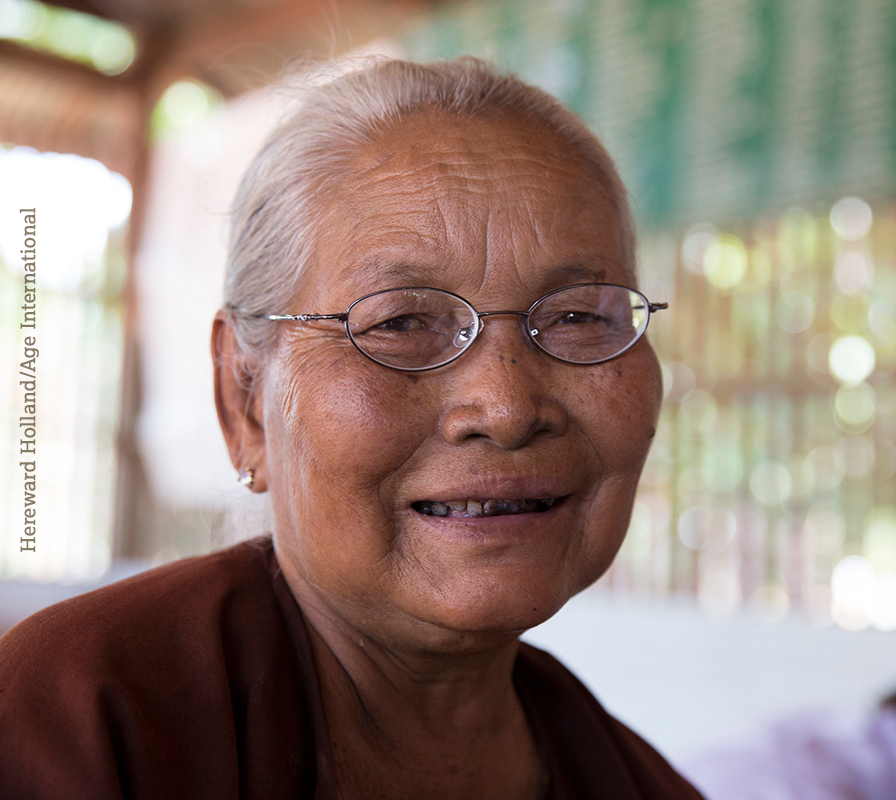The COVID-19 pandemic and its consequences pose significant threats to the wellbeing and dignity of older persons across the Asia Pacific region. The pandemic will have far-reaching and long-lasting impacts in unpredictable ways. Monitoring the impacts of COVID-19 on older persons is therefore essential to inform policy makers and the broader society in order to ensure responses are inclusive of older persons. Throughout 2020, HelpAge and UNFPA, therefore, monitored the situation of older people across the region and in a sample of target countries.
Regional reports
HelpAge published a regional annual report COVID-19 and older people in Asia Pacific: 2020 in review looking back at how the pandemic affected older people in Asia Pacific in 2020. The report documents some of the key themes that emerged throughout the year and suggests critical gaps that 2021 will urgently need to address.



Also, we published two briefs in relation to older persons’ situation in the COVID-19 crisis on two specific topics:
- COVID-19, older adults and long-term care in Asia Pacific, to provide analysis of the variations and connections between COVID-19 and models of care provision in Asia Pacific and to guide understanding of the context and priorities. This brief is based on a study by Irving & Bloom. The full
report, including a full list of references, can be found here. - Data gaps and ageing in the COVID-19 pandemic, to highlight that data gaps are hampering an effective age-inclusive pandemic response particularly in three areas: health and care, income security, and social challenges faced by older people.
Country reports
As part of an Asia Pacific regional initiative, HelpAge International and partner organisations have been producing bimonthly briefs since May 2020 to summarise trends in the situation of older people and responses to their situation in the wake of the COVID-19 pandemic. HelpAge’s documents have been produced with financial support from UNFPA.
In a rapidly moving context, these bimonthly reports aimed to monitor secondary sources of evidence that illustrated changes in the situation of older people during 2020. They also documented how governments and others have responded to the challenges that older people faced. Given the vast scale and diversity of the region, these periodic reports did not aim to be comprehensive and were not supported through a country-by-country search for information across the whole region. Rather, they intended to identify emerging trends across Asia Pacific in broad strokes, with examples.
First series
Country briefs (produced by HelpAge International):
Second series
Country briefs:
Contributors:
Bangladesh – produced by the Department of Population Sciences, University of Dhaka, on behalf of UNFPA Bangladesh; India – produced on behalf of HelpAge International by Nathan Economic Consulting India; I.R. Iran – produced by Prof. Majid Koosheshi on behalf of UNFPA Iran; Japan – produced by the Japan Agency for Gerontological Evaluation Study (JAGES); Republic of Korea – produced by Hanyang University Institute of Ageing Society; Myanmar, Pakistan and Vietnam – produced by HelpAge International.
Contributors:
Afghanistan – produced by Samuel Hall; Bangladesh – produced by the Department of Population Sciences, University of Dhaka, on behalf of UNFPA Bangladesh; India – produced on behalf of HelpAge International by Nathan Economic Consulting India; I.R. Iran – produced by Prof. Majid Koosheshi on behalf of UNFPA Iran; Japan – produced by the Japan Agency for Gerontological Evaluation Study (JAGES); Republic of Korea – produced by Hanyang University Institute of Ageing Society; Myanmar, Pakistan and Vietnam – produced by HelpAge International.
Fourth series
Country briefs:
* The views expressed herein can in no way be taken to reflect the official opinion of UNFPA.

